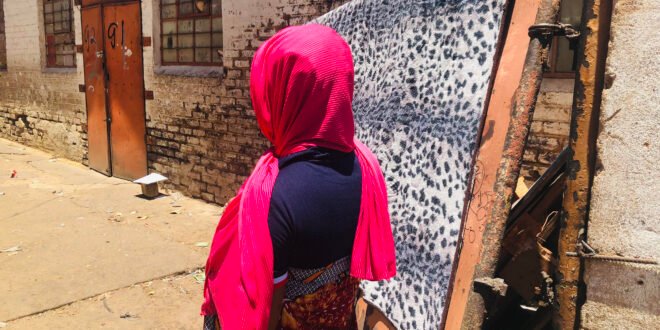The Struggle of Immigrants in South African Clinics
Every time I take my daughter to the clinic, I witness a painful reality that leaves me feeling anxious and hopeless. This situation has become a part of life for many immigrants in South Africa, particularly those who are seeking asylum or have valid permits. In recent months, an anti-immigration group called Operation Dudula has been actively turning away immigrants from government clinics in Gauteng. They claim to be targeting only “illegal” migrants, but the reality is far more complex.
An asylum seeker with valid papers shared her experience at a Johannesburg clinic, where health workers appear to be complicit in Operation Dudula’s actions. Her story highlights the growing tension between immigrants and locals, raising concerns about the treatment of foreigners in public services.
My recent visits to the local clinic for my daughter’s immunizations have left me filled with fear and hopelessness. It feels like we are on the brink of another surge in violence and death. It seems that all foreigners, whether documented or undocumented, are now being treated as unwanted by Operation Dudula. Their members have been protesting at government clinics across Johannesburg, preventing foreigners from accessing essential health services.
I am an asylum seeker with a valid permit. My daughter was born 15 weeks ago in a public hospital in Johannesburg, and her birth was registered there. I was told to go to the Esselen Street Clinic on specific dates for her to get vaccinated. Both times I took her to the clinic, in June and July, the staff were monitoring the number of immigrants and South Africans served. The immigrants were told to wait until all the South Africans in line were served before we could be helped.
This treatment made me feel ashamed. I was not treated with dignity and respect. I was 16 years old when, in 2006, my siblings and I left Zimbabwe to come to South Africa. We did not do it “for the fun of it.” I was a minor, and the move was traumatic. I left behind everything I knew to come here. It was a massive culture shock. I had to quickly adapt to a new school, a new syllabus, and a new language.
In 2008, I was in grade 11 when massive xenophobic attacks took place across the country. It was a scary period, seeing it on the news and staying cooped up indoors out of fear. I’ve been here for 19 years, but it doesn’t feel like home. Zimbabwe doesn’t feel like home. It is only a distant memory. I feel like someone who has no roots. I wonder what the future holds for my children.
I am self-employed, baking and selling special occasion cakes while also helping my husband manage his event equipment company. But at the end of the day, I don’t blame the South Africans. They have every right to be angry because of the narrative that is pushed on social media and by leaders who claim “foreigners are taking all the jobs,” to gain votes.
At the end of the day, it’s people higher up the food chain who are pitting us against each other—using us as a scapegoat for unemployment. It’s a sad situation.
The asylum seeker asked to be anonymous. She contacted us via email. GroundUp staff have fact-checked her story.
Official Responses
There is no policy of prioritizing healthcare users based on their nationality or immigration status in South Africa. Thus, we are not aware of any incidents in which healthcare users have been discriminated against based on their immigration status. Our health professionals are duty-bound to assist any healthcare users regardless of nationality or migrant status because they took a Hippocratic oath, and any action that goes against such an oath will be dealt with according to relevant professional councils—SA National Council for Nurses, HPCSA for Doctors, and other categories of health professionals.
We thus call upon anyone who is denied healthcare service from any public health facility to report to the nearest Department of Health, so we can investigate accordingly.
Operation Dudula’s Perspective
When one comes to the country, they need to have a valid reason why they are here. When you have a proper visa, you will have medical insurance. This means you will have funds to pay for medical bills. Because we are sitting with undocumented people, or people who are just here in the country, claiming to be here legally, yet they are not here to do anything, that’s why they will not even have medical insurance. We are not saying they shouldn’t be attended to. What we are saying is that if they are attended to, they must pay for the service. If they’re undocumented, they must be treated and handed over to law enforcers.
 Info Malang Raya Its All About World News
Info Malang Raya Its All About World News




